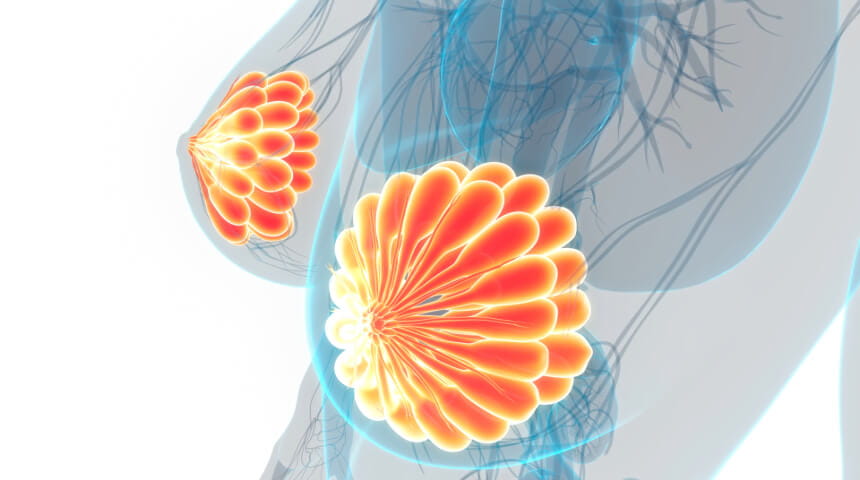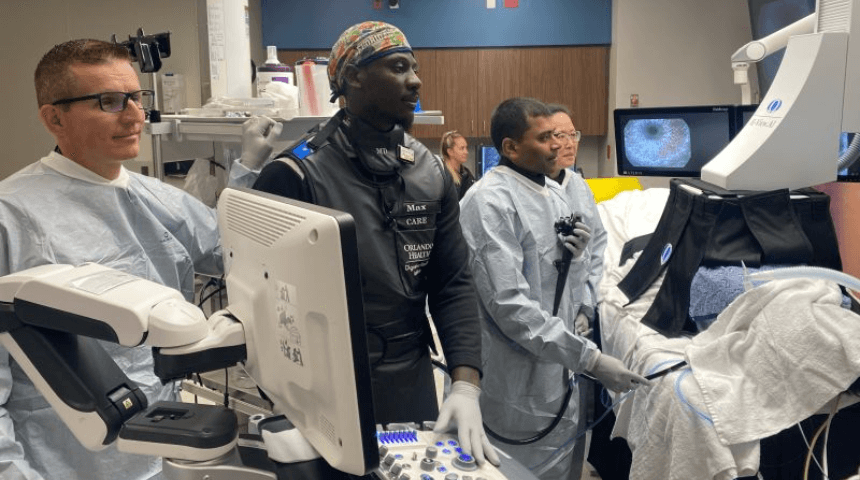Neuro-oncologists at Orlando Health Cancer Institute are effectively treating papillary craniopharyngioma positive for the BRAF mutation using novel targeted chemotherapy. Recently tested in clinical trials, the combination of BRAF inhibitor dabrafenib with selective mitogen-activated extracellular signal-regulated kinase (MEK) inhibitor trametinib successfully shrinks tumors by targeting only the specific cancer cells expressing the BRAF mutation involved in regulating cell growth. And the best part: They are both oral agents and well-tolerated by the majority of patients.

“The 2023 clinical trial studying this targeted treatment has shifted how we manage these rare tumors,” says Dr. Fernando Santos Pinheiro, MD, a board-certified neuro-oncologist at Orlando Health Cancer Institute. “These patients used to be treated with surgery and radiotherapy, but now we have the option of starting with a much more effective and less invasive therapy.”
Dr. Santos began treating his first patient with BRAF/MEK inhibitor dual therapy in December 2024. “When we started, her tumor was golf-ball size,” says Dr. Santos, who specializes in brain and spine tumors, as well as tumor-predisposing syndromes. “Five months later, the tumor had shrunk to the size of a raisin, and she remains both clinically and radiographically stable.”
A slow-growing, intracranial non-glial neoplasm, papillary craniopharyngioma occurs in 1% to 5% of all primary intracranial tumors. While rare, the tumor can cause significant clinical sequelae due to tumor size and location, resulting in visual impairment, cranial nerve paralysis, headaches and devastating cognitive symptoms.
“This tumor grows near a very vascular area of the brain, with close proximity to the optic nerve and pituitary gland,” says Dr. Santos, who has two more craniopharyngioma patients starting targeted chemotherapy this summer. “Dual BRAF/MEK inhibitor therapy more positively impacts a patient’s quality of life, while sparing them from radiation’s toxic effects or possible surgical complications.”
Dr. Santos believes treating neuro-oncology patients takes a village, noting “a multidisciplinary group will develop better plans than a single physician.” “At our institute, we hold a weekly brain tumor board attended by neuro-oncologists, neurosurgeons, radiation oncologists, radiologists and pathologists. We analyze our most challenging neuro-oncology cases to collaborate on treatment, and we invite our colleagues at hospitals without brain tumor boards to submit cases here for a second opinion.”
Orlando Health Cancer Institute is nationally recognized as a clinical and basic cancer research center, treating more than 100,000 patients annually with novel therapies, leading-edge technologies and innovative research that enhances patient outcomes and access to care.





